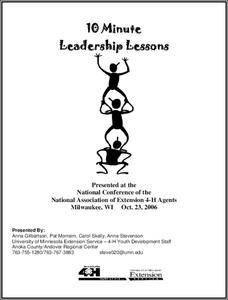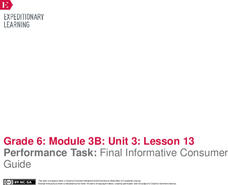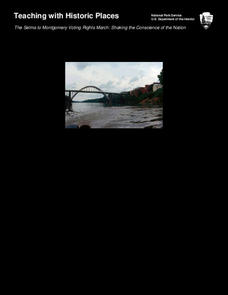Museum of the American Revolution
Dunmore's Declaration
To fight or not to fight, that is the question. A thought-provoking activity focuses on the Dunmore Declaration that promised to free enslaved people who chose to fight for the British during the American Revolution. Scholars read the...
Museum of the American Revolution
Dissecting the Declaration
Delve into the past to understand the issues that led to the Declaration of Independence. Academics read excerpts from the Declaration of Independence and take a virtual tour of the American Revolution Museum. The resource explains how...
Museum of the American Revolution
Hamilton Was Here: Rising Up in Revolutionary Philadelphia
Hamilton may be a hit Broadway show, but there is so much more to learn. An eight-unit resource guides young historians through the life of Alexander Hamilton and the Revolutionary War. The lessons include hands-on-activities, writing,...
EngageNY
End of Unit Assessment: Individual Sections of Readers Theater Script
Let's play! Pupils create titles for their readers theater scripts and act them out in a fun game of charades. Next, as part of their end of unit assessment, they write final copies of their individual scripts.
Museum of the American Revolution
Image Analysis: In Their Own Words
Images often convey more than words. Scholars examine political cartoons from the American Revolution to understand how images have the ability to express political ideas. Academics participate in group discussion, complete a worksheet,...
Museum of the American Revolution
The Ongoing Revolution
America: a nation that continues to change. Budding historians analyze primary sources to understand the key ideas of the American Revolution and how the country has changed over time. Scholars read text from the Declaration of...
Museum of the American Revolution
Historical Analysis: Objects Tell Stories
Dig this! Young archeologists discover what objects teach us about the past. The activity uses an image of a Revolutionary War artifact to help historians practice analyzing the past. Scholars study the object and complete a worksheet to...
John F. Kennedy Center
Harriet Tubman: An Informative and Impressionistic Look
Informational text and impressionistic art lead a lesson plan about Harriet Tubman. Working in teams, scholars examine a variety of resources. They analyze, compare, and contrast the work. Using their research findings, pupils create an...
John F. Kennedy Center
Harriet Tubman: Retelling History Through Dance and Drama
Scholars listen to several pieces of music in preparation for a discussion about how instruments and lyrics convey emotions. With Harriet Tubman as the focus, small groups create an original song or dance. A reflection piece concludes...
John F. Kennedy Center
Musical Harlem: How Is Jazz Music Reflective of the Harlem Renaissance?
Bring jazz music and the Harlem Renaissance to light with a lesson that challenges scholars to research and create. Pupils delve deep into information materials to identify jazz terminology, compare types of jazz and jazz musicians,...
Crabtree Publishing
The Genius of the Ancients
It is said that necessity is the mother of invention. Fifth graders prove this with help from three lessons that examine how ancient cultures used their needs to drive innovations. In lesson one, pupils identify main ideas and supporting...
Nemours KidsHealth
Germs: Grades 6-8
As part of their study of bacteria, viruses, fungi, and protozoa, middle schoolers create engaging public service announcements for preschool and kindergarten classes, teaching them how and when to wash their hands. To begin, class...
eNet Learning
10 Minute Leadership Lessons
Forty pages offer 21 lessons to encourage leadership among kindergarten through eighth-grade scholars. Hands-on activities use the experiential learning model while exploring personal traits, getting to know peers, teambuilding,...
Exploratorium
Secret Codon - Write a Message in DNA
String up a message. Pupils string together colored beads to code a word or short phrase. Each color represents one of the four DNA bases. Using a combination of three bases, learners create an amino acid that stand for each letter of...
EngageNY
Finishing Poster and Preparing for Gallery Walk
Practice makes progress! Using their drafts and resources from the previous lesson, pupils complete scientific posters for an upcoming gallery walk. Next, they practice presenting their posters to assigned partners.
EngageNY
Completing Reflection: Preparing a Poster for Presentation
Prewrite, plan, draft, revise, edit, share. Scholars complete a worksheet to reflect on how they used the writing process to improve their writing. They also draft plans for their scientific posters that they will display in an upcoming...
EngageNY
Performance Task: Final Informative Consumer Guide
Formative feedback should be kind, specific, and helpful. Pupils engage in a peer editing process, using a rubric to critique a partner's writing. Next, scholars use the feedback to create the final version of their informative consumer...
EngageNY
Analyzing the Features of an Informative Consumer Guide
Analyze, strategize, synthesize! Scholars analyze informative consumer guides to determine what features to include in their own guides. Next, pupils select charts and images to use in their guides.
American Chemical Society
Periodic Table Trends Activity
The term periodic in periodic table has meaning. Young scientists view a video to learn about the periodic table and then use the provided resources to create their own tables. They focus on patterns of the chemical properties of each...
National Park Service
The Selma to Montgomery Voting Rights March: Shaking the Conscience of the Nation
Travel back in time to examine how tragic events can spur positive change. Scholars explore the impact of the Selma Voting Rights March, including the tragic loss of life and the later signing of the Voting Rights Act of 1965. Academics...
National Park Service
Discover the Mary Ann Shadd Cary House
Mary Ann Shadd Cary was an extraordinary woman, no matter the time period. Academics research the life and achievements of Mrs. Cary, who was born a free African American in 1823. The lesson uses primary sources, worksheets, written...
DocsTeach
Where Was the New Deal?
Young historians delve into the origin of federal social programs to understand the impact of the New Deal. An informative activity explores some of the New Deal programs, such as the Civilian Conservation Corp, using historical...
DocsTeach
Two Versions of FDR's Infamy Speech
Historians follow FDR's Infamy speech from rough draft to the official address to the Senate. An intriguing activity compares and contrasts FDR's original speech to the official version. Academics also listen to FDR address the Senate....
DocsTeach
The School Lunch Program and the Federal Government
The school lunch program is rooted in the struggles of the Great Depression and is still assisting families today. Academics research documents and images relating to the creation of the school lunch program. Scholars use a worksheet to...

























